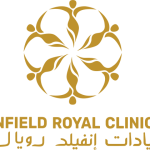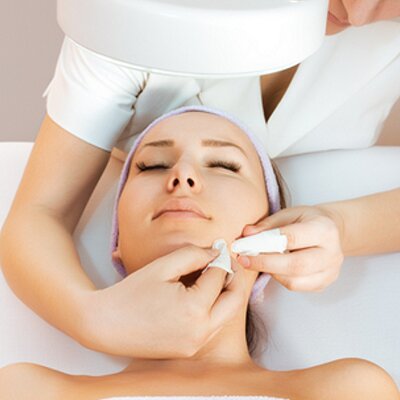Acne is often thought of as a teenage issue, but it can persist into adulthood or even arise later in life. In Oman, older adults seeking Acne Treatment in Oman may find that their skin requires different care than it did in their youth. This article explores the best treatment options available for older adults struggling with acne, including their benefits, potential side effects, and recommendations for a tailored skincare routine.
Understanding Acne in Older Adults
Acne in older adults can be attributed to various factors, including hormonal changes, stress, diet, and skincare products. While teenage acne is primarily caused by hormonal fluctuations during puberty, adults may experience acne due to menopause, stress-induced hormonal changes, or the use of certain medications. Understanding the underlying causes is crucial for effective acne treatment in Oman.
The Role of Hormones
Hormonal changes, particularly in women, play a significant role in adult acne. Fluctuations in estrogen and progesterone levels can lead to increased oil production and clogged pores. Additionally, older adults may be more susceptible to acne due to hormonal treatments or medications.
Stress and Its Impact
Stress can exacerbate acne in older adults. The body’s response to stress can increase oil production, leading to breakouts. Developing stress management techniques, such as mindfulness or exercise, can be beneficial in controlling acne.
Topical Treatments for Acne
Topical treatments are often the first line of defense for managing acne. Here are some effective options:
1. Benzoyl Peroxide
Benzoyl peroxide is a widely used topical treatment that helps kill acne-causing bacteria and reduce inflammation. It's available in various forms, including gels, creams, and washes. When used correctly, benzoyl peroxide can effectively treat mild to moderate acne. However, it can cause dryness or irritation, so it’s essential to start with a lower concentration and gradually increase it as tolerated.
2. Salicylic Acid
Salicylic acid is another popular ingredient in acne treatments. It helps unclog pores by exfoliating the skin and preventing dead skin cells from accumulating. Products containing salicylic acid can be particularly beneficial for older adults, as they are gentler on the skin compared to harsher exfoliants.
3. Retinoids
Topical retinoids, such as tretinoin or adapalene, are effective in treating acne by promoting cell turnover and preventing clogged pores. Additionally, they can help reduce the appearance of fine lines and wrinkles, making them a dual-purpose treatment for older adults concerned about aging skin. However, retinoids can irritate, so it’s crucial to start slowly and use them in conjunction with a moisturizer.
Oral Medications for Acne
For more severe cases of acne, oral medications may be necessary. Here are some options to consider:
1. Antibiotics
Oral antibiotics can help reduce inflammation and acne-causing bacteria. Commonly prescribed antibiotics for acne include tetracycline and doxycycline. While effective, long-term use of antibiotics can lead to resistance, so they are usually prescribed for a limited duration.
2. Hormonal Treatments
Hormonal therapies, such as oral contraceptives or anti-androgens like spironolactone, can be effective for women experiencing hormonal acne. These treatments work by regulating hormonal fluctuations that contribute to acne development.
3. Isotretinoin
Isotretinoin is a potent oral medication typically reserved for severe or resistant acne. It significantly reduces oil production and prevents clogged pores. However, it has potential side effects and requires careful monitoring, especially regarding its effects on pregnancy.
Lifestyle Modifications
In addition to topical and oral treatments, certain lifestyle changes can aid in managing acne in older adults.
1. Skincare Routine
Establishing a gentle skincare routine is essential for older adults dealing with acne. Use a mild cleanser and non-comedogenic products to avoid further irritation. Incorporating a hydrating moisturizer can also help counteract dryness caused by acne treatments.
2. Dietary Considerations
Some studies suggest a link between diet and acne. Reducing sugar and dairy intake while increasing the consumption of fruits, vegetables, and omega-3 fatty acids may help improve skin health. Staying hydrated is also crucial for maintaining healthy skin.
3. Sun Protection
Older adults should prioritize sun protection as certain acne treatments can increase skin sensitivity to the sun. Using a broad-spectrum sunscreen daily is vital to prevent sun damage and protect the skin.
Professional Treatments for Acne
For persistent or severe acne, professional treatments may be beneficial.
1. Chemical Peels
Chemical peels involve applying a solution to the skin that exfoliates and promotes cell turnover. They can effectively treat acne and improve skin texture. Professional peels are tailored to individual skin types and concerns, making them a suitable option for older adults.
2. Laser Therapy
Laser treatments can target acne scars and active breakouts. Various laser options are available, including fractional lasers, which stimulate collagen production and improve skin texture. Consulting with a dermatologist in Oman can help determine the best approach for individual needs.
3. Light Therapy
Light therapy, including blue light and red light treatments, can help reduce acne-causing bacteria and inflammation. These treatments can be effective in conjunction with other therapies for optimal results.
Conclusion
Managing acne in older adults requires a comprehensive approach that considers individual skin types, underlying causes, and lifestyle factors. By combining topical treatments, oral medications, and professional therapies with healthy lifestyle choices, older adults in Oman can effectively treat their acne and achieve healthier skin. Remember to consult with a dermatologist to tailor a treatment plan that best suits your needs, ensuring the most effective results in your journey toward clear skin.






Comments